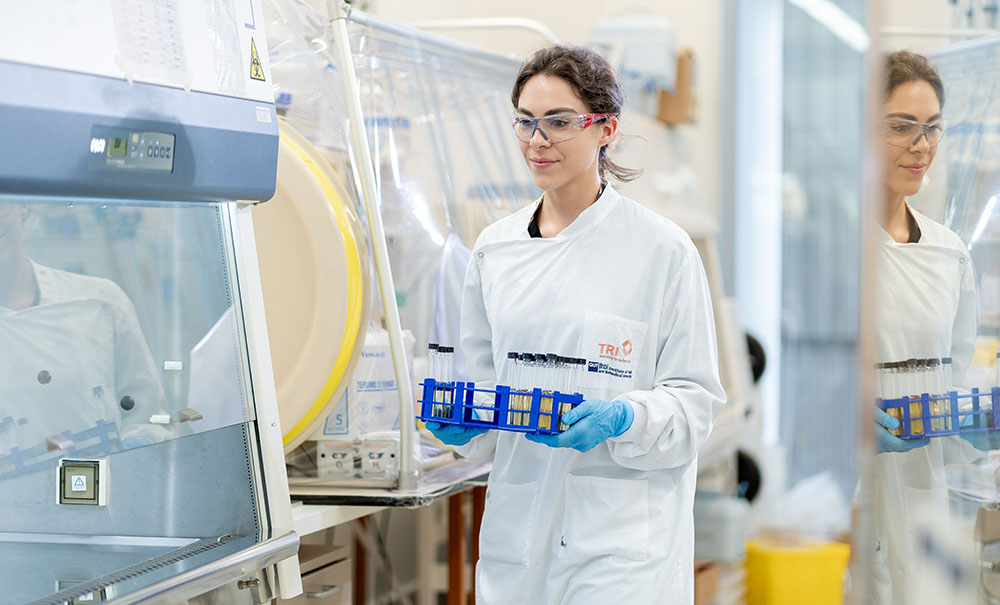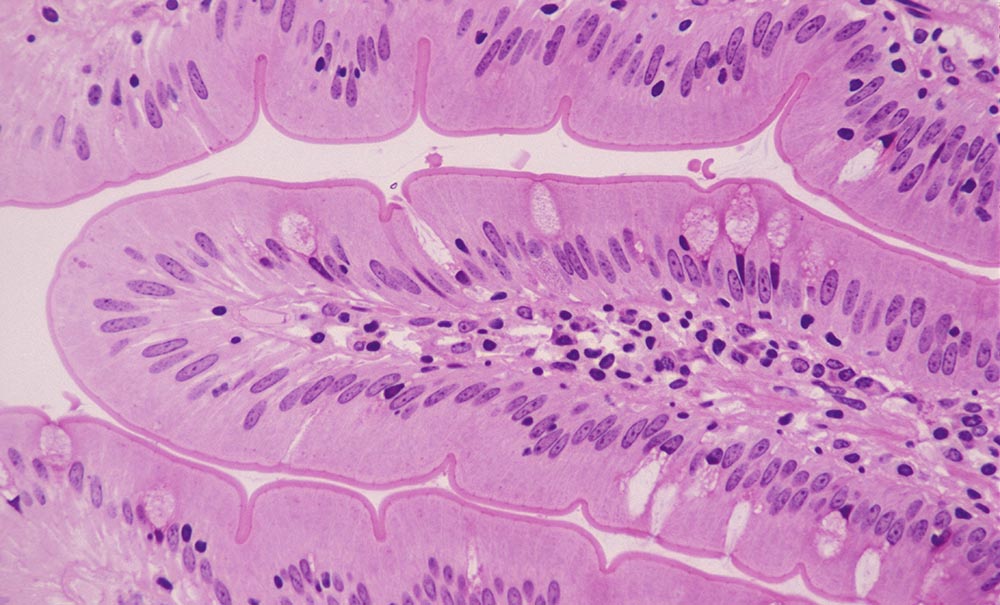
Lara Carrington, 1 May, 2024
Master of Diagnostic Genomics alum Lara Carrington is undertaking research into how the gut microbiome affects human health.
What is your area of research within diagnostic genomics?
My research expands on current research undertaken by the Centre for Microbiome Research within the Translational Research Institute Australia. I am developing a novel technique to visualise the gut microbiome. This will provide unprecedented insight into the fine-scale dynamics of the gut microbial community which may assist in further understanding human health outcomes.
I find everything about my research fascinating. I am at an exponential learning phase where I am learning multiple new things every day. I am hoping that I will be able to develop this novel technology into a robust and scalable technique.

What led you to gut microbiome research?
I had a fascination for science from a young age. I was particularly interested in genetics, specifically surrounding human health outcomes. In the final year of my undergraduate course, I undertook a capstone subject researching the effects of multiple early-life antibiotic interventions on the gut microbiome and autoimmune responses. This sparked my interest in the gut microbiome and how it has the potential to affect human health.
I worked in the gut microbiome industry and decided to undertake my Masters in Diagnostic Genomics to further my knowledge in human genetics and potentially further my understanding of the affects the gut microbiome has on human health outcomes. I find it fascinating that something we cannot see has the potential to influence our health in many ways.

What have been the advantages of completing your postgraduate studies?
I would not be undertaking a PhD without the completion of the Masters in Diagnostic Genomics. It helped me develop connections with academics and provided me an amazing research dissertation that I enjoyed. I gained so much knowledge not only from the coursework but from my research dissertation in fields such as ethics, project management, academic writing, and communication.
What is it like studying diagnostic genomics at QUT?
This course was designed to be flexible. I worked during this course, so the course provided extreme flexibility allowing me to both work and study. Additionally, the lecturers held tutorials and seminars outside of work hours for students, which I did not experience in my undergraduate degree, and was extremely thankful for.
Undertaking coursework combined with research/practical components were extremely valuable to me. It gave me the opportunity to apply the knowledge learnt in the coursework within the practical component. Additionally, the coursework provided me with connections to academics and peers to support me through my journey. One of the incredible lecturers assisted me in planning my research component and was an incredible supervisor guiding me through the experience.

How did the staff support you in your studies?
The QUT staff played such a large part in my experience of my postgraduate studies. The lecturers were flexible in their teaching methods holding tutorials and seminars outside of work hours for students who were employed giving us an opportunity to attend. They were accessible when you needed advice and were willing to go above and beyond to get the most out of the course.
My supervisor provided me with mentorship, support, insight, feedback, industry connections and guidance throughout my course and research dissertation. Without them, I would not have been able to successfully apply for my PhD scholarship.
Would you recommend this pathway to someone who is considering undertaking higher degree research?
Yes! The Master of Diagnostic Genomics gave me connections with academics and provided me an amazing research dissertation that I enjoyed. I gained so much knowledge not only from the coursework but from my research dissertation in fields such as ethics, project management, academic writing, and communication.
Being a PhD student is a rewarding experience pushing the boundaries of learning into the unknown. It is an exponential learning experience with the support of your supervisors to become a well-rounded professional.
